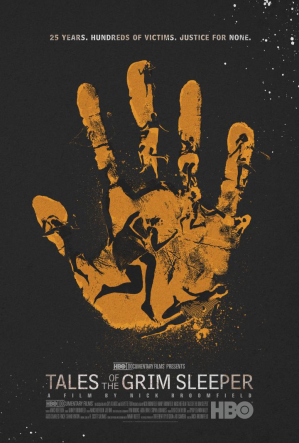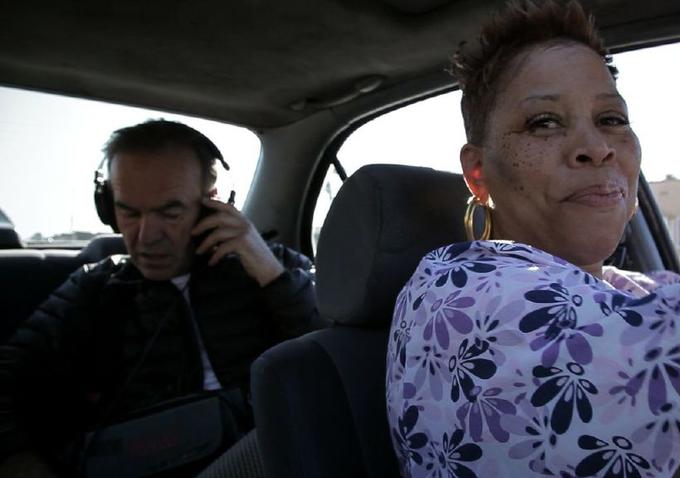AFI Fest: 'Tales of the Grim Sleeper' and the Politics of Telling Other People's Stories
 Thursday, November 13, 2014 at 3:00PM
Thursday, November 13, 2014 at 3:00PM Margaret reporting from the AFI Fest...
 The new documentary Tales of the Grim Sleeper, on the long list of eligible Oscar doc titles, screened for the first time in Los Angeles not ten miles from the scene of the brutal crimes it addresses. The feature investigates a serial murderer and his staggering number of victims over two decades in a close-knit South L.A. community-- and these are not the kind of crimes that "could have happened anywhere." Visited on an already underserved and overlooked neighborhood, the killings targeted upwards of one hundred black women, many prostitutes and drug users, whose lives the police disregarded so entirely that for years the crimes were designated by the LAPD as NHI-- No Human Involved.
The new documentary Tales of the Grim Sleeper, on the long list of eligible Oscar doc titles, screened for the first time in Los Angeles not ten miles from the scene of the brutal crimes it addresses. The feature investigates a serial murderer and his staggering number of victims over two decades in a close-knit South L.A. community-- and these are not the kind of crimes that "could have happened anywhere." Visited on an already underserved and overlooked neighborhood, the killings targeted upwards of one hundred black women, many prostitutes and drug users, whose lives the police disregarded so entirely that for years the crimes were designated by the LAPD as NHI-- No Human Involved.
The entry point for the film is an investigation of Lonnie Franklin, Jr., the suspect in custody who is still awaiting trial, but as the documentary picks apart layers of the case it instead becomes a scathing indictment of a broken justice system.
Director Nick Broomfield, a white British man whose background gives him little in common with the subjects of his narrative, has significant advantages in accessing and broadcasting this story. A pioneer in the self-reflexive documentary style that has since been employed by Michael Moore and Morgan Spurlock, he inserts himself into the narrative just enough be transparent about his outsider relationship to the community, and his platform as an affluent white filmmaker.

Thankfully, Broomfield doesn't seem to labor under the impression that it's his story to tell. For his Q&A after the AFI Fest screening, he brought up Pam Brooks, who makes invaluable contributions to the movie as a neighborhood guide and storyteller, and Margaret Prescod, tireless spokesperson for the Black Coalition Fighting Back Serial Murders. Broomfield deftly redirected audience questions about the victims, miscarriage of justice, and the apartheid in L.A. to Margaret and Pam.
Lonnie Franklin's public defender, a minor presence in the documentary who came off as a sloppy, hapless suit, emerged from the audience to make a tone-deaf bid to co-opt the Q&A, talking over Margaret and Pam and offering unsolicited advice. This tasteless move only served to underline the film's point about invisibilization of the affected community, and the importance of supporting their voices.
Someone in the audience asked, "What can we do?" Nick Broomfield deferred again to Margaret Prescod. "This film should be shown all over this city. Make sure people see it. Make sure city officials see it. How many black women died, were murdered? We're still waiting to find out. It took a British filmmaker to come here and tell this story... We are not done here."
So, what can we do? We can think about who gets to tell these stories, and try to listen and respect the people who are telling their own.














